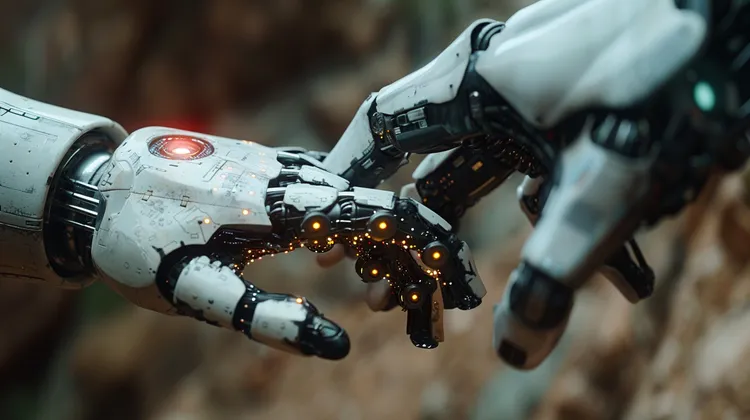Starknet, a layer-2 blockchain platform based on Ethereum, is set to introduce artificial intelligence (AI) agents that can perform various on-chain activities for users. Giza, a company dedicated to bringing AI to blockchains, raised $3 million in a pre-seed round led by CoinFund in July 2023 and is leading this initiative. By the end of June, AI agents will be deployed on Starknet, followed by other blockchains. These AI agents will be capable of yield aggregating, acting as robo-advisors for portfolio allocation, providing liquidity on decentralized exchanges, and predicting price movements.
To ensure security, the Giza team will audit and approve agent strategies during the beta phase. In the future, the Giza Protocol will make agents completely permissionless, offering cryptographic and cryptoeconomic security for trust-minimized exchanges between developers and users. The initial deployment will focus on yield optimization, and other functionalities will be introduced later.
The AI agents are designed to be low-cost and low-computation, optimizing returns by buying and selling assets to maintain the same weighting in a portfolio on lending platforms. Since all accounts on Starknet are smart contracts, proofs can be directly verified within the contract itself. The AI models are created using the Cairo programming language and rely on Zero-Knowledge Scalable Transparent Argument of Knowledge and zero-knowledge proofs (ZK-proofs) developed by StarkWare.
The Giza co-founder, Cem Dagdelen, believes that agents will become the new application layer for Web3, removing the risks and complexities associated with smart contract usage. These agents are not limited to the crypto and blockchain industries. Giza suggests that they can also assist highly regulated sectors in reducing oversight costs by validating outputs using AI models.
While some experts, like Ava Labs founder Emin Gün Sirer, anticipate that AI-backed smart contract coding is still several years away, they recognize its potential to onboard billions of new blockchain users once it becomes available. Ethereum co-founder Vitalik Buterin advises caution when integrating AI into blockchains, emphasizing that AI should assist humans in understanding on-chain processes rather than enforcing smart contract rules.




Ethereum co-founder Vitalik Buterin is right to advise caution. We shouldn’t rush into integrating AI without fully understanding the consequences.
This is just another attempt to make blockchain more mainstream, but it’s not going to work.
The ability of these AI agents to predict price movements and act as robo-advisors for portfolio allocation is mind-blowing! They can truly optimize returns and make investing on blockchain platforms more accessible and efficient.
Another platform claiming to optimize returns. I’ve seen enough of these promises fall flat.
However, I do appreciate the cautious approach taken by experts like Vitalik Buterin. It’s important to ensure that AI is used as a tool to assist humans, rather than replacing human decision-making entirely.
Instead of AI agents, we should be focusing on improving blockchain scalability and security.
AI models created using some programming language I’ve never heard of? Sounds like a recipe for disaster.
The security measures taken by the Giza team are impressive. Auditing and approving agent strategies during the beta phase is crucial to ensure the safety of users’ funds. 💪🛡️
The use of the Cairo programming language and Zero-Knowledge Proofs by StarkWare demonstrates the technical innovation behind this project. It’s incredible to see these cutting-edge technologies being utilized.
I can already see the headlines: AI agents on blockchain hacked, millions of dollars lost.
Wow, this is such an exciting development in the blockchain space! The integration of AI agents on Starknet is going to revolutionize the way we interact with decentralized platforms.
Overall, I’m extremely excited about the future of AI agents on Starknet and the potential they hold for the blockchain industry. This is a significant step towards mass adoption and innovation!
I highly doubt that these AI agents will be able to effectively predict price movements. It’s just wishful thinking.
AI-backed smart contract coding is still years away? Then why are they wasting time and money on this project now?
What’s the point of introducing AI agents on a decentralized blockchain? It defeats the purpose of decentralization!
It’s also fascinating to think about how AI agents can be applied beyond just the crypto industry. The potential for reducing oversight costs in highly regulated sectors is huge!
I’m not convinced that AI agents will be able to reduce oversight costs in highly regulated sectors. It’s just a sales pitch.
I have faith in the Giza team and their vision. With their expertise in bringing AI to blockchains, I believe they will successfully integrate these AI agents and unlock their full potential. 🙌🚀
I highly doubt that these AI agents will be low-cost and low-computation. There’s always a catch.
How can we trust the Giza team to audit and approve agent strategies? They could easily manipulate the system.
This AI agent sounds like another hyped-up project that will never live up to its promises.
The Giza team claiming to offer cryptographic security doesn’t mean much. We’ve seen countless hacks and breaches in the crypto industry.
The idea of AI agents becoming the new application layer for Web3 is intriguing. It could simplify smart contract usage and remove complexities for users, making blockchain technology more user-friendly.
I don’t see the need for AI to be integrated into blockchains. It’s just going to complicate things even more.